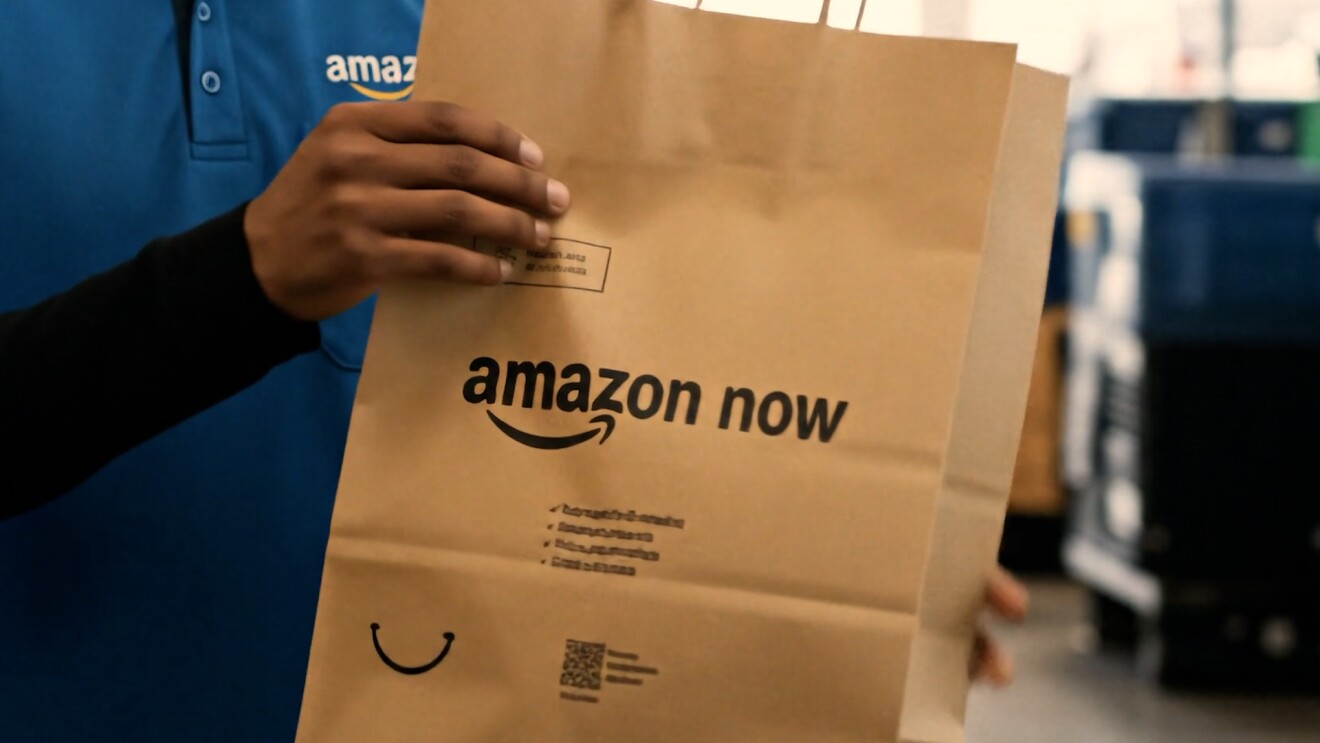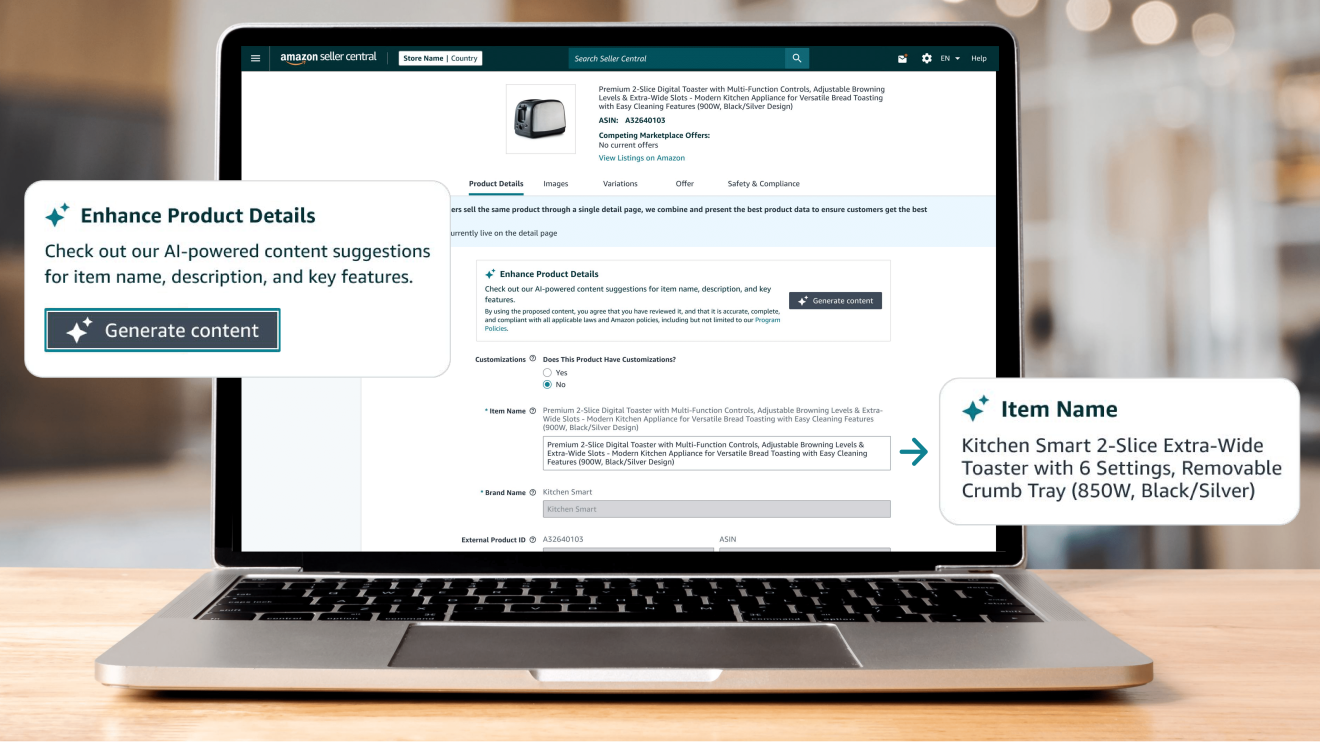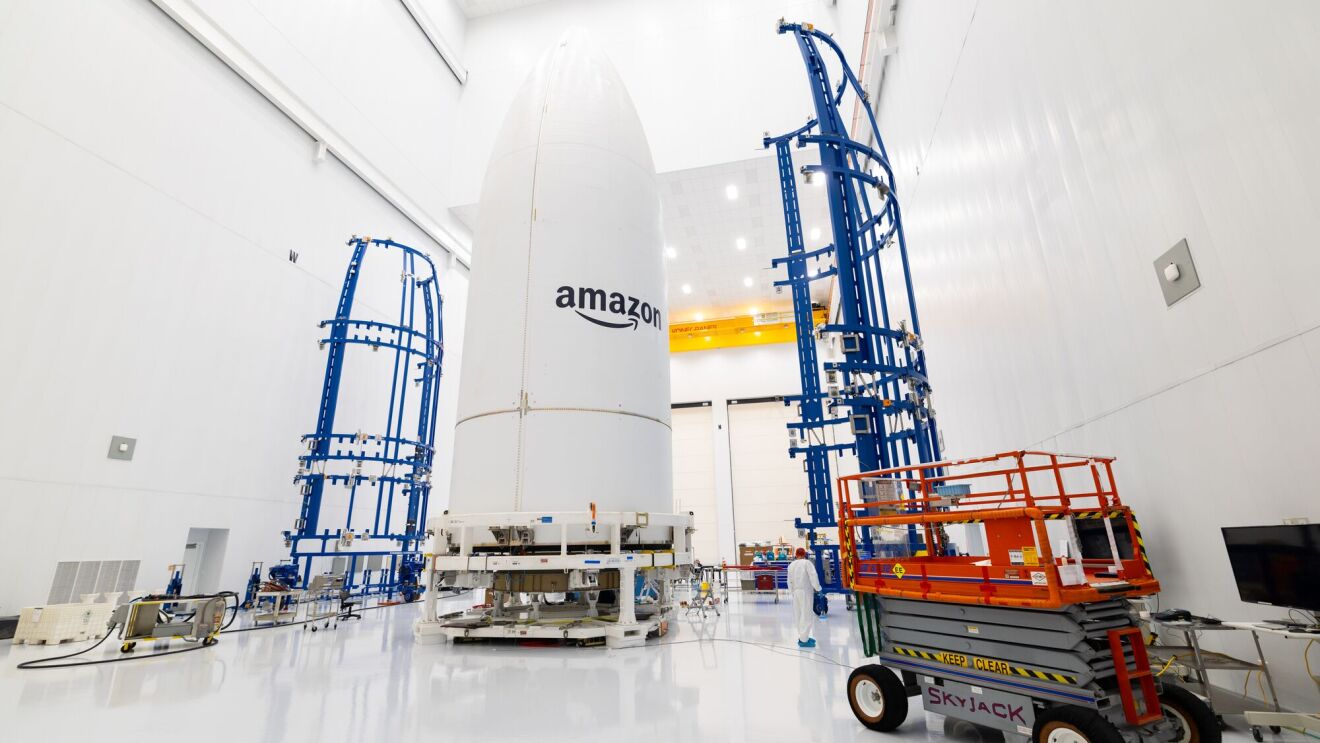Page overview
A more conversational Alexa with generative AI

Conversations with Alexa should be as natural as talking to a friend. With a new large language model (LLM) custom-built and optimized for voice interactions, Alexa is more intuitive than ever. The new LLM will also help Alexa understand context, so you can have back and forth conversations without having to repeat yourself, and conversations can flow more smoothly.
Product detail pages are a key source of information for Amazon shoppers. But creating compelling product titles and descriptions can take a lot of sellers’ time and effort. As a result, some detail pages are more comprehensive and useful than others.
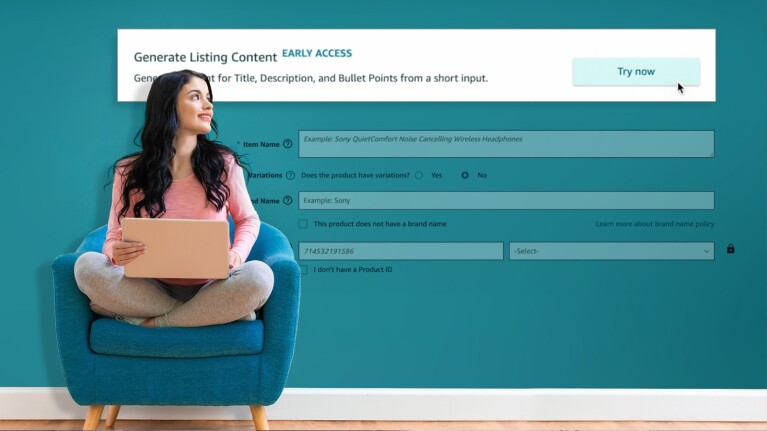
Generative AI helps sellers provide richer information with less work. It reduces the need to enter multiple pieces of specific product data, combining it into just one step. This saves time for sellers, produces more thorough product listings, and helps customers make more confident purchase decisions.
Generative AI helps advertisers make their ads more engaging and visually rich, and delivers a better advertising experience for customers. Using the Amazon Ad Console, advertisers simply select their product and click “Generate.” In just seconds, the tool delivers a series of lifestyle and brand-themed images.
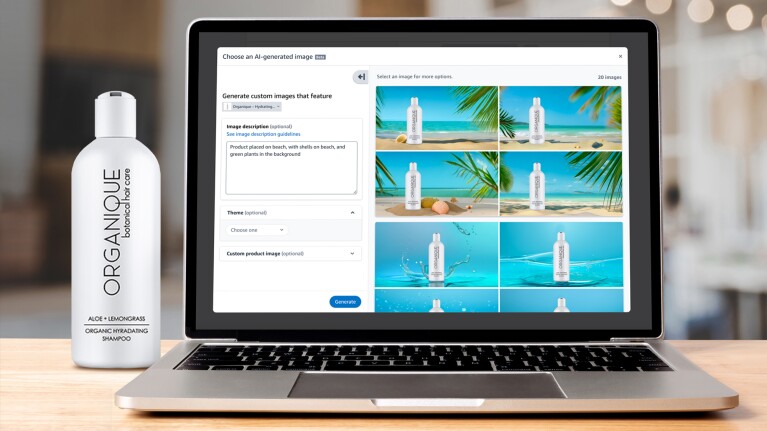
For example, a toaster that was previously shown with a white background might now be on a kitchen counter next to some fruit and muffins. Short text prompts then help refine the image, and users can quickly create and test multiple versions to optimize performance.
No wallet? No problem. Amazon used generative AI to develop Amazon One, a fast and convenient contactless identity service that enables customers to use their palm to make payments, verify their ages, or enter locations.

To train the AI model, Amazon scientists used generative AI to create millions of synthetically generated images of the palm and the subcutaneous vein structure. Amazon One delivers an accuracy rate of 99.9999%, which exceeds the accuracy of other biometric alternatives—it’s even more accurate than scanning two irises. You can use Amazon One at all of the more than 500 Whole Foods Market stores in the U.S. and at over 100 customer locations across the country, including Crunch Fitness, Hudson stores at airports, and multiple stadiums and entertainment venues.
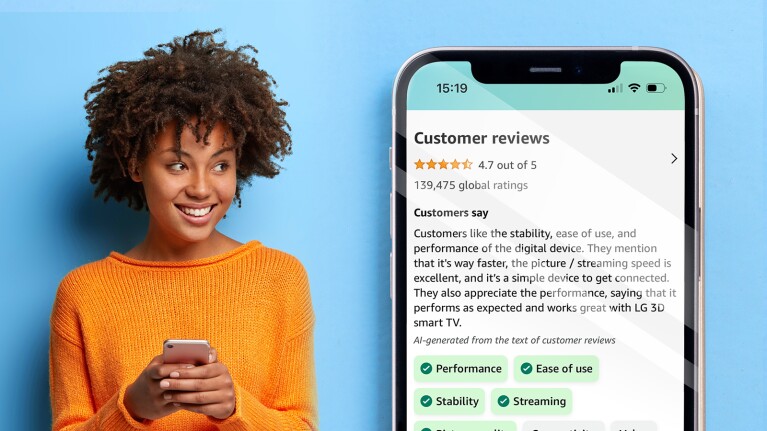
Customers can quickly determine what other customers are saying about a product by taking advantage of review highlights, which are also powered by generative AI. The feature provides a short paragraph on the product detail page that highlights the product features and the most frequently mentioned customer sentiment across written reviews. The text helps customers determine at a glance whether a product is right for them.
Defensive Alerts is the newest AI-enhanced feature from Thursday Night Football. The feature, which airs during TNF’s weekly alternate stream, Prime Vision with Next Gen Stats, tracks defensive players’ movements before the snap and highlights in real time the “players of interest” who are likely to rush the quarterback.
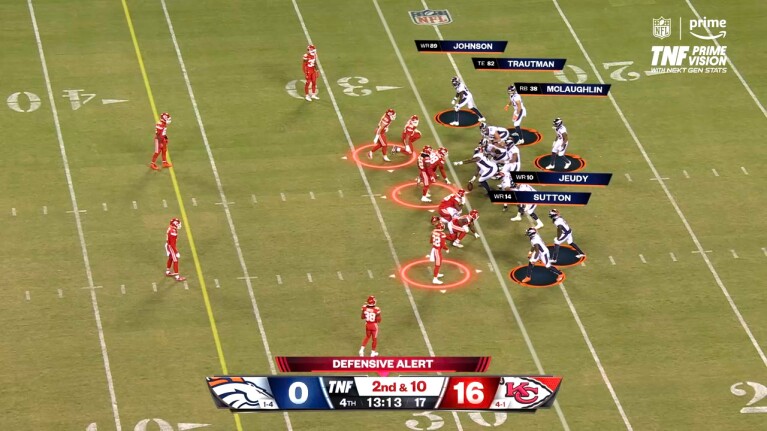
With Prime Vision’s blend of AI and machine learning powering features like Defensive Alerts, fans can place themselves in the coach’s shoes and read developing plays like a quarterback.
How often do you want to grab a snack at a sporting event, but the line is too long? Using a combination of computer vision, object recognition, advanced sensors, deep learning, and generative AI, Amazon’s Just Walk Out technology allows fans to enter a concession stand, grab whatever they want, and quickly get back to their seats—without waiting in a checkout line.
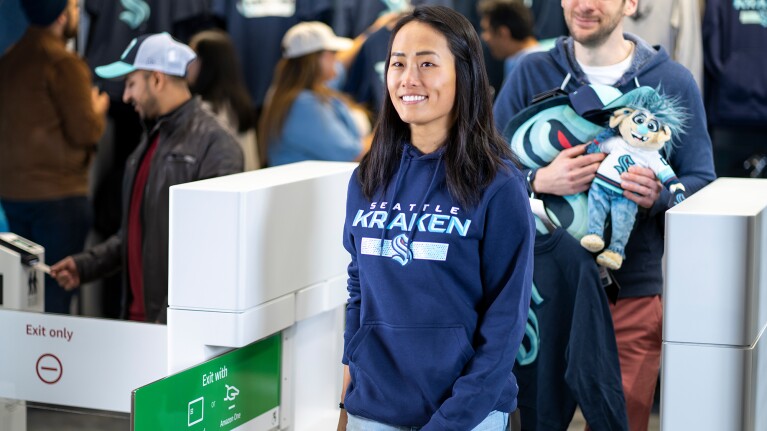
Amazon used generative AI to create photorealistic synthetic images and video clips that mimick realistic and sometimes rare shopping scenarios. Those include variations in store format, lighting conditions, and even crowds of shoppers—all information about situations that can be hard to find in real life and difficult to teach a computer.
Just Walk Out technology is now available as a service to retailers. So far, the technology has been implemented at over 100 third-party locations at airports, stadiums, universities, convenience stores, theme parks, and other locations.
Even though most prescriptions are now transmitted electronically, they can still be confusing and hard to read. By using generative AI, Amazon can take unstructured instructions, such as “take by mouth” or “take orally,” and make them more structured. That allows the pharmacy team to scale operations, fill prescriptions more quickly and efficiently, and reduce human error.

Generative AI also helps Amazon Pharmacy staff answer questions more quickly because it scours internal wikis and other sources of information, and then summarizes the findings.
Trending news and stories



